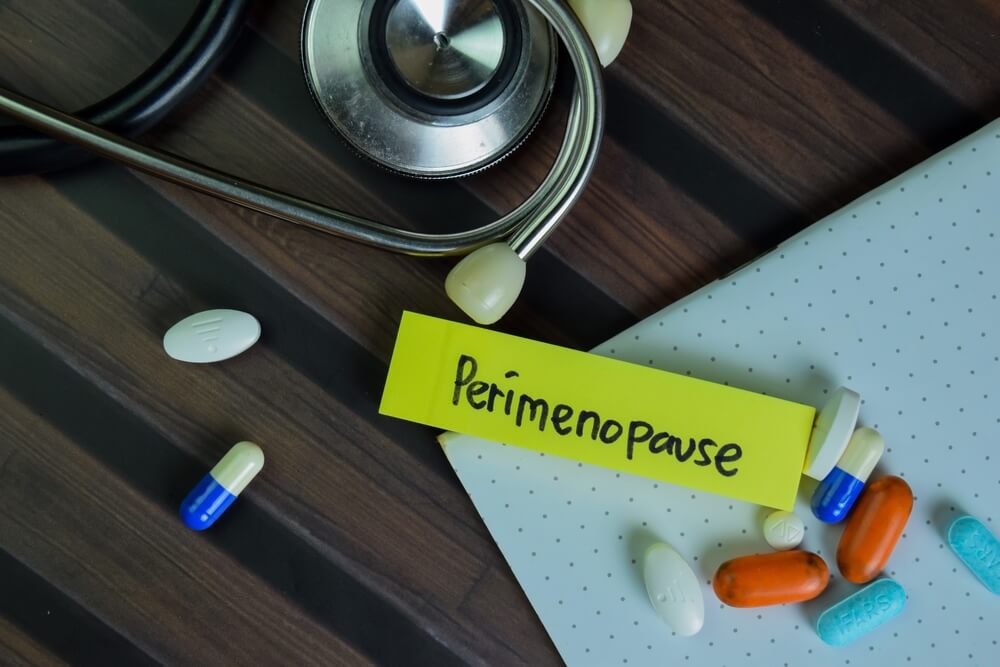Many women have problems with perimenopause weight gain, meaning that you’re not alone if you are going through the same. The extra pounds are the symptoms of hormonal changes in women’s bodies due to menopause. The reasons and factors behind this may be different. But most often, gaining weight occurs due to hormones, genes, lifestyle, or aging.
Every woman experiences perimenopause and menopause differently. Some may produce milder symptoms, while others will find this period difficult. Also, some will gain weight, and others won’t. Still, these periods can certainly be challenging, and women need to find the best ways to overcome every obstacle.
Fortunately, you’re not alone. Every woman goes through this experience sooner or later. And while it may seem scary and unpredictable, it doesn’t have to be that way. Today, perimenopause and menopause are no longer a nightmare because modern research and medicine help make life easier for every woman who is going through this phase.
As such, if you need assistance with your symptoms, don’t hesitate to visit and seek the advice of a certified menopausal practitioner.
Phases of The Female Reproductive System
Before answering the questions about weight gain in perimenopause, we need to explain the phases of the female reproductive system and their characteristics:
Women’s reproductive life phases are:
- Premenopause – begins with the first menstruation and ends with the last. In this period of life, a woman is fertile. This phase lasts the longest in a woman’s life (30-40 years).
- Perimenopause – the period before menopause or “around menopause.” Women may experience symptoms from their mid-30s to 50s, but usually in their 40s. During this period, a woman may feel a bit different because of the changing progesterone and estrogen levels the ovaries produce. Still, a woman is considered reproductive during this period, and conception is possible. This phase lasts from a few months to a decade, depending on every woman individually.
- Menopause – if a woman doesn’t have menstruation for 12 months in a row, she is in menopause. The perimenopause symptoms can intensify when a woman enters menopause, but even this is individual and varies from woman to woman. On average, menopause in women begins around the age of 51.
- Postmenopause – the phase after menopause. The terms menopause and postmenopause are often inseparable. It may happen that a woman still feels certain physical and hormonal changes, but most often, symptoms and changes that a woman has experienced in the previous period stop.
If you find yourself in the above situations, and you want a doctor’s advice on how to deal with perimenopause or menopause, or you want to prepare for the period that awaits you, contact us regarding Women’s sexual health at Doral Beach Gynecology, FL, and feel free to request an appointment.
Hormones and Perimenopause

Perimenopause is often not observed separately from premenopause, but there are changes in a woman’s body, and specialists may separate them. When a woman enters perimenopause, changes in hormone levels occur: progesterone levels decline, while estrogen levels vary.
Oscillations in estrogen levels are most characteristic of this phase. Estrogen levels shoot up and down much more often and faster in perimenopause than they usually do. The brain controls the release and distribution of estrogen. These hormonal changes in perimenopause and menopause occur due to disturbances in feedback signals on the ovary-hypothalamus-pituitary gland axis (neuroendocrine system).
At the very beginning of perimenopause, estrogen may increase, while later, it decreases significantly at the end of this phase. That affects all processes in the female body.
Indicators of perimenopause, and often menopause, due to hormonal level changes can be:
- a headache
- weight gain
- increased body fat
- insomnia
- changes in the menstrual cycle
- mood changes
- depression
- anxiety
- heat intolerance
- decreased libido
- vaginal dryness
These symptoms are often unpleasant and confusing to women, and mostly, estrogen and progesterone levels are responsible for most of them. For example, perimenopausal headaches occur precisely because of the influence of these hormones on specific chemicals in the brain. Hormonal perimenstrual headaches may be more intense and strenuous for women who already have migraine problems because they may intensify.
Perimenopause Weight Gain
If we look at the average weight gain in perimenopause, women add 2 to 5 pounds during perimenopause. Still, that’s average. Some women may gain more weight, but others won’t.
Women who otherwise have problems with obesity or are overweight will most often gain even more weight during perimenopause.
Unlike in the case of men, a female body tends typically to store fat under the skin on the hips and thighs. But in perimenopause and menopause, women may also store fat in the stomach area. This deep visceral fat surrounds organs such as the liver, heart, or kidneys and may adversely affect your health. Storing fat in these areas may contribute to the development of diabetes type 2, insulin resistance, high cholesterol, or even heart disease.
It has been proven that the level of ghrelin or “hunger hormone” is increased in perimenopause. Neuropeptide Y, leptin, and hormones that control our appetite, under the influence of estrogen level changes, can affect the constant feeling of hunger and lead to unnecessary calorie intake, even overeating. This usually happens because of low estrogen levels at the end of perimenopause.
Progesterone and its effect on weight gain have not been confirmed, but it is believed that estrogen and progesterone may both affect weight gain in perimenopause.
The predictors for weight gain in perimenopause may be:
- Woman’s age when menopause occurs (women who enter menopause earlier have less body fat)
- Reduced physical activity (during this period, a decrease in muscle mass may happen)
- High levels of insulin and cholesterol
- Improper diet (the most important factor in gaining weight)
- Bad life habits and lifestyle (smoking, alcohol, stress, less sleep, etc.).
How Not To Gain Weight In Perimenopause?

To avoid any large oscillations in body weight, certain dietary rules should be followed throughout life. A perimenopause diet should facilitate your transition to menopause and help your body and protect it from possible diseases.
A perimenopausal diet should be based on the following:
- Consume more foods rich in fiber
- Eat more protein and unsaturated fats
- Use calcium and magnesium as dietary supplements
- Reduce the intake of saturated fats
- Limit the intake of refined carbohydrates and sugar
- Reduce alcohol and caffeine
- Eat regularly and do not skip meals
- Try to balance the amount of food and calories you eat
Also, certain lifestyle changes can go a long way in helping you avoid weight gain in perimenopause.
Physical activity keeps your body in shape, making it stronger and ready for what you will encounter. Exercise can increase muscle mass and reduce fat. Still, you don’t want to jump right into it. If you haven’t exercised before, start with brisk walks and less vigorous activities like pilates or yoga.
Also, if you smoke, it would be good to stop, not just because of your general health but also because of the possibility of worsening your symptoms in perimenopause and menopause.
The Bottom Line
Perimenopause is a transitional phase between premenopause and menopause. During these phases, women are facing many changes, and not all of them are pleasant. By tweaking your diet and life habits, you can certainly make it easier for your body to cope with these new conditions. Being active and eating well will help you get through this transit period without adding unnecessary pounds to your frame. Proper nutrition will not only help you avoid weight gain in perimenopause but will also affect mood swings, headaches, insomnia, and other symptoms you may encounter.
If this article has been helpful to you and you want to learn more about the changes in your body in perimenopause and menopause, feel free to contact us at Doral Beach Gynecology.


